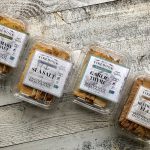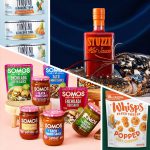Expo East: Missing Certifications ‘Deal Killers’ For Consumers & Retailers

Consumers are demanding clean labels, but not everyone know how to spot them. To help, the industry is increasingly turning to third-party certifications as visual cues to guide both consumers and retailers toward these types of products, a process that’s not always as straightforward as it may seem.
During a panel discussion at Natural Products Expo East 2017 in Baltimore, Md., Kim Dietz, senior manager of environmental, natural and organic policy at J.M. Smucker; Lisa De Lima, VP of grocery at MOM’s Organic Market; and Tracy Favre, director at Quality Insurance International, all spoke about why they look to certifications. During the discussion, they explained how certifications drive many of the decisions they make in their respective focus areas and which certifications can be “deal killers” for both consumers and retailers when missing from a package.
Currently, organic is the top retail certification on the market at 49 percent, and with annual growth of eight to 12 percent year over year. Non-GMO, gluten-free and kosher follow close behind, with over 75 percent of consumers saying they seek out the Non-GMO Certified butterfly symbol on product labels. Though other certifications may not have the same market share, the panelists noted that more niche, mission-driven certifications like fair trade and sustainable seafood are also seeing year-over-year growth.
Certifications can act as a diploma that brands can hang on their “walls,” but third party verifications can be costly to secure and maintain. For organic and non-GMO alone, there is a focus on identity reservation, ingredient declarations and formulation information that requires both paper and on-site inspections. Favre suggested that entrepreneurs work with organizations that allow companies to “bundle” multiple certifications, or at the very least align themselves with people who know the space and step-by-step process.
“In the real world, entrepreneurs know it’s better to ask for forgiveness than permission,” she said. “But in organics specifically, it’s the complete opposite.”
However, not all certifications carry the same weight, especially in the eyes of retailers. Organic, non-GMO and gluten-free are the most important certifications that MOM’s Organic Market seeks out when reviewing a product, according to De Lima. Lacking these certifications, she said, can be a “deal killer” that completely halts the product review process for a brand.
While MOM’s will occasionally make exceptions for brands that make these claims without official certifications, De Lima said they’ll only do so if a brand can provide the correct documentation to show they meet those same standards.
“[Certifications] make it easier for our buyers but also when you think about the consumer, the customer comes into a store and has thousands of products to choose from and there are a lot of similar products. So it gives them that added trust,” she said. “Without the certification, [we’re making brands complete] really the same paperwork and legwork you would have done anyways.”
To meet consumer needs and retailer’s standards for getting on shelves, Dietz said J.M. Smucker, whose California plant was the first production facility in the U.S. to receive organic certification in 1997, has always considered certifications an important part of its sourcing and R&D processes.
However, Dietz hinted that the industry may be guilty of sprinting too far ahead of consumer education. For example, to appeal to consumers, Dietz said J.M. Smucker chose to become non-GMO certified, even though by the nature of its process anything certified organic is free from GMOs.
“We’ve done a poor job as a trade to communicate the actual difference between organic and non-GMO,” she said. “So how do you know which to use? As a manufacturer we only have so much space on our labels and it’s limited but at same time we have good problem that consumers are demanding these products. So we want to try to limit [repetitiveness] as much as we can, but at the same deliver to consumers what they want.”
She added that the J.M. Smucker team hopes to be able to take the non-GMO bug off its packages eventually, and that they are working on developing strategies to better educate consumers in the future.












